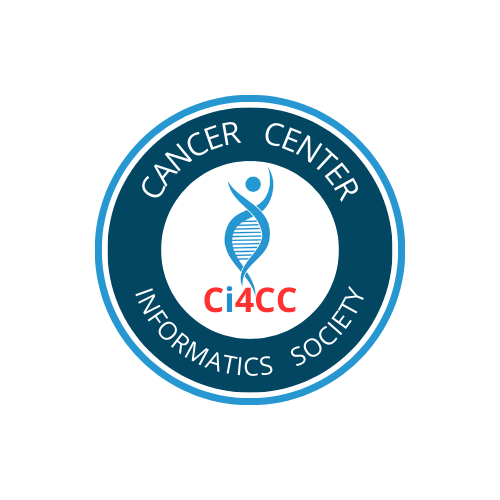Precision Medicine Initiative and Cancer Research
This is a transformational moment for cancer research. Thanks to the investment by Congress in NCI and NIH research, we have arrived at a new understanding of cancer.
We now recognize that cancers are fundamentally diseases of the genome and that understanding cancer begins by identifying the abnormal genes and proteins that confer the risk of developing cancer. Identifying and analyzing these abnormalities will define how we diagnose cancer, determine how we develop and use targeted therapies to treat cancer, and shape the strategies we use to prevent cancer.
After decades of research, we are poised to enter a new era of medical practice where detailed genetic and other molecular information about a patient's cancer is routinely used to deploy effective, patient-specific remedies to treat it. We are about to enter the era of precision medicine.
FY 2016 Initiative on Precision Medicine
The President’s Budget for NCI for Fiscal Year (FY) 2016 contains funding increases for priority research to advance the field of precision medicine. As NCI focuses on oncology research under this FY 2016 initiative, increases proposed for other NIH institutes will advance precision medicine in other fields of science.
Under the Precision Medicine Initiative, NCI will assemble and analyze additional genomic data sets to increase our understanding of cancer genomes and their relationship to gene variants that a patient may have inherited. Based on the genomic information we uncover, NCI will test new therapies against childhood cancers and several common adult cancers. NCI will also develop better animal and cell-based models of cancer, study mechanisms of drug resistance, and identify new therapies and therapy combinations to overcome drug resistance. NCI will build on what it has already learned in ways that will accelerate the pace of discovery and deliver benefits to patients through clinical practice.
Under the Precision Medicine Initiative, NCI will target funding increases to three broad areas. NCI will conduct the priority activities of the initiative through competitive grants, cooperative clinical research, and research and development contracts.
For more details about how NCI will work with NIH on the Precision Medicine Initiative, see the New England Journal of Medicine editorial entitled A New Initiative on Precision Medicine.
NCI Clinical Trials to Advance Precision Medicine
Cancer presents an exceptionally promising opportunity to refine the principles and practices that will serve as the foundation for precision medicine. With additional resources in its FY 2016 budget, NCI will increase funding to support clinical trials that offer two distinct approaches to advancing precision medicine. The first approach recruits patients with all types of cancer, and then selects a targeted drug based on the specific genetic abnormalities of the patient's tumor. NCI is using this approach in its Molecular Analysis for Therapy Choice (NCI-MATCH) Program, which enrolls pediatric and adult patients with tumors that no longer respond to standard therapy. The second approach, demonstrated in the NCI Lung-MAP study, recruits patients with one type of cancer and then subdivides patients into genomically defined subsets, treating each subset with a different targeted drug.
Both types of trials have important and achievable goals:
- making the molecular characterization of cancers the clinical standard for accurate diagnosis and treatment
- identifying or developing an array of treatments that can be matched to the molecular features of a tumor to successfully control the disease.
Another feature of these trials is the opportunity to link their genomic findings to clinical data, lifestyle risks such as tobacco use and obesity, environmental mutagens, and viral infections. This additional feature will become a resource to support further discovery and identify new strategies for cancer prevention, early diagnosis and early intervention.
Overcoming Drug Resistance in Cancer Treatment
A major obstacle to successfully treating cancer is the challenge of resistance either to new, targeted therapies or to traditional chemotherapies. To address this challenge, NCI will support additional research to uncover the mechanisms of resistance by:
- developing cancer models from tissues obtained at the time of diagnosis and at relapse to uncover mechanisms of resistance to treatment
- analyzing tumor DNA and tumor cells circulating in blood samples to develop methods to predict relapse before this problem is identified clinically or in radiologic studies
- testing combinations of targeted agents in clinical trials to identify approaches to overcome drug resistance.
Knowledge System to Support Precision Medicine
NCI will also build information platforms to support the integration of genetic information about tumors with data on how the tumors respond to therapy. This is the knowledge system envisioned in a 2011 Institute of Medicine (IOM) report entitled Toward Precision Medicine. As the IOM recommends, the NCI system will integrate molecular and clinical knowledge in ways that are useful to both scientists and clinicians.
NCI’s knowledge system will incorporate genetic, biochemical, environmental and clinical data from patients to define molecular subtypes and identify the approaches to cancer care that will improve patient outcomes. This component of the Precision Medicine Initiative is based on the expectation that the “big data” that emerges from precision medicine trials can be used to construct models that predict, with increasing accuracy, response to treatment.
Ongoing NCI Programs that Support Precision Medicine
This FY 2016 initiative rests on a solid foundation of NCI programs that support and advance precision medicine. NCI will continue this ongoing work as it also supports new and expanded precision medicine research under the FY 2016 initiative.
NCI Translational and Therapeutic Studies: The most conspicuous application of the principles of precision medicine appears in ongoing NCI programs to identify targeted therapeutics, such as the National Clinical Trials Network (NCTN), the NCI Community Oncology Research Program (NCORP), the NCI Early Therapeutics Clinical Trials Network (ETCTN), and the NCI-MATCH Program. These programs use molecular methods to identify drugs that will deliver optimum results for treating tumors. In addition, NCI is also focusing on patients identified as exceptional responders based on their strong and favorable response to investigational drugs or conventional chemotherapy. NCI is conducting genetic assessments of tumors from these exceptional responders to learn about the basis of their favorable response.
NCI Genomics and Cancer Biology Research: In its established programs in genomics research, NCI is using high-throughput techniques to identify and study small mutations, rearrangements, and chemical modifications of DNA and to detect changes in the production of RNA and proteins. Through programs such as The Cancer Genome Atlas (TCGA), the Therapeutically Applicable Research to Generate Effective Treatments (TARGET) Initiative, and the Cancer Target Discovery and Development (CTD2) Network, NCI is supporting research and related translational and clinical science activities that are making important advances in precision medicine. NCI also supports precision medicine research through programs such as the Tumor Microenvironment Initiative (TMEN), the Integrative Cancer Biology Program (ICBP), and through NCI intramural programs such as those focusing on genomics and chromosome biology.
NCI Immunology and Immunotherapy Research: As NCI identifies the potential of tumors to alter their genetic code and generate potent antigens, immunotherapy is becoming an integral part of precision medicine. NCI continues to support many extramural grantees and intramural investigators who are working to treat cancers using immunotherapy.
NCI Cancer Imaging Research: The technology to precisely measure, monitor and diagnose tumor progression and regression is essential to affirm the success of precision medicine. Through programs such as NCI's Quantitative Imaging Network and The Cancer Imaging Archive, NCI is developing and refining tools to help oncologists make decisions about the optimum cancer treatment pathways for individual patients.
Finally, components of other NCI basic and translational science programs, including investigator-initiated competitive grants, NCI research and development contracts, and programs such as the RAS Initiative are also making important contributions to precision medicine, which demonstrates the breadth of NCI efforts in this field.
Share this Article with others





